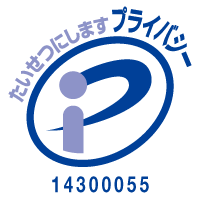Autologous (self-into-self) stem-cell therapy holds promise for cell replacement treatments based on the generation of a patient’s own induced pluripotent stem cells (iPSC) followed by production of specific replacement cells from iPSCs. It is thought that this autologous approach will minimize the impact of immune rejection and use of immunosuppressive drugs, leading to more successful therapies.
In an exciting step closer to new treatments based on autologous iPSCs, a team of investigators from McLean Hospital and Massachusetts General Hospital (MGH) report in The New England Journal of Medicine (May 14, 2020) the first-in-human trial using autologous iPSCs to generate and replace lost dopamine neurons in the brain of a Parkinson’s disease patient.
Their study reports the following findings:
- A 69-year-old man with a 10-year history of progressive Parkinson’s disease underwent two separate surgeries for implantation of midbrain dopaminergic progenitor cells that had been differentiated in vitro from autologous induced pluripotent stem cells.
- No immunosuppression was used in the course of the patient’s treatment.
- Imaging suggested that the two grafts were delivered to the target sites and survived throughout the follow-up periods of 24 months (after the first surgery) and 18 months (after the second).
- Clinical changes appeared gradually over the 18–24 months after implantation, and the levodopa equivalent daily dose decreased by 6%.
- No dyskinesias or other adverse neurological effects were reported by the patient or observed by the clinical team
(source: MGH press release https://advances.massgeneral.org/neuro/journal.aspx?id=1551)
Two years later, imaging tests indicate that the transplanted cells are alive and functioning correctly as dopaminergic neurons in the brain. Because the implanted cells originated from the patient, they did not trigger an immune response and were not rejected without the use of an immunosuppressant drug. Senior author, Kwang-Soo Kim, PhD also noted, “We have shown for the first time in this study that these reprogrammed cells are still recognized as self by the patient’s immune system and won’t be rejected.” These results indicate that this personalized cell-replacement strategy was a technical success, with the cells surviving and functioning in the intended manner. The patient has not developed any side effects, and there are no signs that the cells have caused any unwanted growth or tumors.
As for how the patient feels, in the time that has passed since surgery, the patient has enjoyed improvements in his day-to-day activities and reports an improvement in his quality of life. Routine activities, such as tying his shoes, walking with an improved stride, and speaking with a clearer voice, have become possible again. Some activities—such as swimming, skiing, and biking, which he had given up years ago—are now back on his agenda. While it is too early to know whether this treatment approach is viable based on a single patient, the authors have the goal of continuing to test the treatment in formal clinical trials.
“Current drugs and surgical treatments for Parkinson’s disease are intended to address symptoms that result from the loss of dopaminergic neurons, but our strategy attempts to go further by directly replacing those neurons,” says Kim.
(source: McLean Hospital press release https://www.mcleanhospital.org/news/novel-treatment-using-patients-own-cells-opens-new-possibilities-treat-parkinsons-disease)


